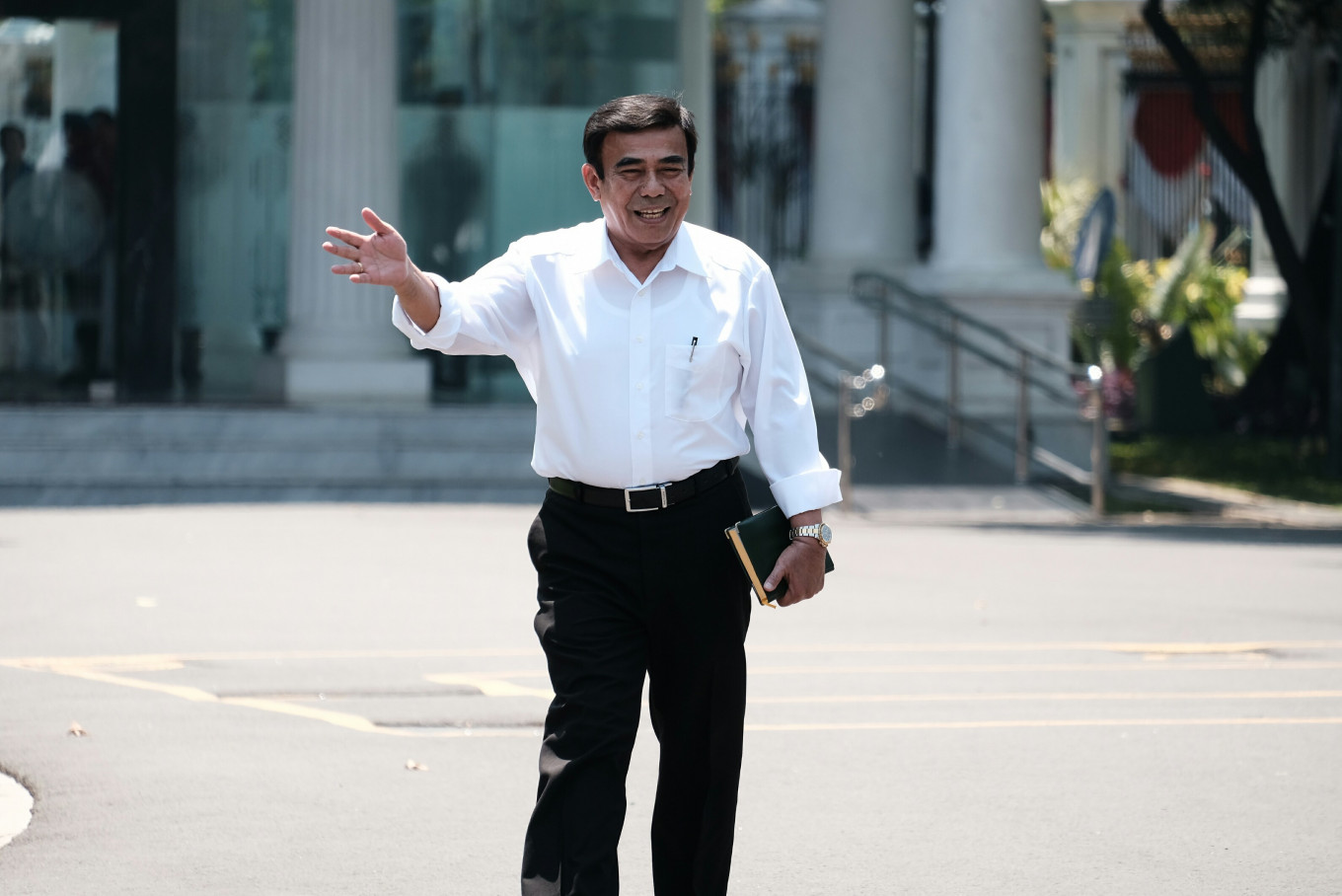Popular Reads
Top Results
Can't find what you're looking for?
View all search resultsPopular Reads
Top Results
Can't find what you're looking for?
View all search resultsTempting niqab ban
Once again we must remind the government, and also fellow Indonesians, that however much we seek state protection, interference into private choices such as clothing must never be allowed. Further, bans on certain clothing have been ineffective.
Change text size
Gift Premium Articles
to Anyone
I
n his early days, new Religious Affairs Minister Fachrul Razi has had to issue an apology for his announced plan to ban the cadar (full-faced veil), or niqab, for women and cropped pants for men. Indeed they are both easily associated with Muslim “radicals”, and worse, terrorists; these were the clothes worn by a couple who attacked then-chief security minister Wiranto last month.
Ironically, some female family members of Wiranto himself wear the cadar, but he has stated that as staunch nationalists, they have no intention of turning the Indonesian republic into a caliphate or Islamic state, as is the stereotype for those wearing such clothing.
Once again we must remind the government, and also fellow Indonesians, that however much we seek state protection, interference into private choices such as clothing must never be allowed. Further, bans on certain clothing have been ineffective.
Four years after the coordinated terrorist attacks in Paris that killed 131 people, the French, like citizens of other “liberal” nations, understandably have welcomed some state control, including a national ban on the niqab. It is highly tempting to follow suit, but Indonesians have the not-so-distant experience of authoritarianism, during which Soeharto tried to ban the hijab — which is so commonplace today.
In the 1980s, Iran’s Islamic revolution fired up Muslims who felt suppressed and black veils and gowns became visible across campuses despite a ban and despite the students becoming ostracized. We agree with protesters against Fachrul’s statement who said he should focus on other more important things, such as the root of extremism, which President Joko “Jokowi” Widodo is attempting to address more seriously during his last term.
Just remember the protests involving the now-banned Hizbut Tahrir Indonesia (HTI), which campaigned for a caliphate; most of the women did not wear a niqab, so the stereotype is misleading.
Administrative and Bureaucratic Reform Minister Tjahjo Kumolo has meanwhile emphasized that the national uniform for civil servants has not changed — meaning no full veils and cropped pants.
Regardless of the complaints against Fachrul’s expected security approach as a former army general, the government must indeed use all available resources to at least reduce the root of extremism.
Experts have pointed to groups that are marginalized, aggravated by social and economic inequality and easily fueled by misleading religious interpretations. But equally important is that the minister proves his worth in protecting freedom of faith for all Indonesians.
The new government must show it is doing everything it can to revoke hundreds of discriminative bylaws and policies, including the mandatory submission of at least 60 signatures to build a house of worship, which is often difficult in a Muslim-dominant neighborhood.
Jokowi and his aides have a fresh opportunity to help Indonesians better understand what it takes to live in this diverse archipelago. While attempting to root out extremism, policies and gestures to protect each citizen will go a long way in signaling that intolerant attitudes against minorities are unacceptable.
All Indonesians should be able to take for granted their freedom of choice, their freedom of worship.










